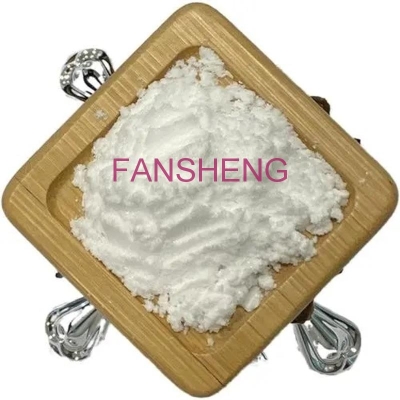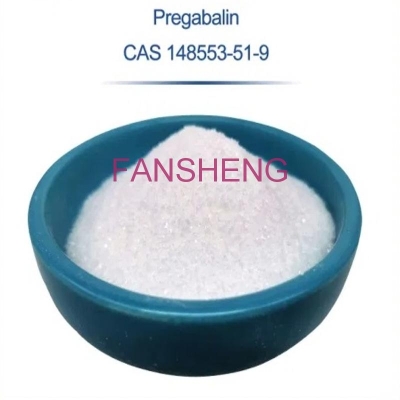-
Categories
-
Pharmaceutical Intermediates
-
Active Pharmaceutical Ingredients
-
Food Additives
- Industrial Coatings
- Agrochemicals
- Dyes and Pigments
- Surfactant
- Flavors and Fragrances
- Chemical Reagents
- Catalyst and Auxiliary
- Natural Products
- Inorganic Chemistry
-
Organic Chemistry
-
Biochemical Engineering
- Analytical Chemistry
- Cosmetic Ingredient
-
Pharmaceutical Intermediates
Promotion
ECHEMI Mall
Wholesale
Weekly Price
Exhibition
News
-
Trade Service
With the increasing global aging, dementia has become a global problem
This article is mainly aimed at the early screening and early diagnosis of AD by single-molecule immunoassay technology, and Professor Chen Qin from the Department of Neurology of West China Hospital of West China University in West China makes a wonderful interpretation of this, this article is summarized as follows:
The needs and pain points of AD blood testing
Due to the complex pathological mechanism and many influencing factors, the diagnosis of AD is difficult to accurately diagnose clinically
Figure 1 AD diagnostic method
Compared with the above three diagnostic methods, the blood sample is more stable, easy to collect, and the concentration of biomarkers in the blood is relatively uniform and stable, which is an ideal test sample
Background on single-molecule immunoassay technology
Biomarkers refer to biochemical indicators that can mark changes in the structure or function of systems, organs, tissues, cells and subcellular cells or possible changes, and are widely used in the field of clinical diagnosis, of which protein biomarkers are the most important components
Over the past half century, with the rapid development of immunoassay technology, protein biomarker detection systems have tended to be more sensitive, more precise and more friendly
Different from the traditional immunoassay technology that directly measures the optical signal strength of the reaction system as a whole, the single-molecule immunoassay technology realizes the direct signal capture and analysis of the single molecule to be measured through a special technical path, and realizes ultra-high sensitivity quantitative analysis through the absolute count of the molecules to be measured
At present, the mainstream technical path to achieve single-molecule immunoassays and its advantages and disadvantages are as follows:
Table 1 Mainstream implementation path of single-molecule immunoassay and its advantages and disadvantages
Figure 2 A Total internal reflection microscopy implements the working principle of single molecule detection
B Confocal microscopy enables single molecule detection working principle C Digital ELISA working principle
Existing single-molecule immunoassay technologies generally have complex technical paths, long detection processes, and high detection costs, and cannot be widely used
Single-molecule immunoassay technology facilitates the clinical translation of AD blood biomarkers
Because the detection sensitivity is 1000 times higher than that of traditional immunoassay, single-molecule immunoassay technology can achieve the lower limit of 1fg/mL detection, which can fully cover the detection needs of AD blood biomarkers, and is particularly suitable for clinical translational applications of AD blood biomarkers
➤ Single-molecule immunoassay technology detects pain points in the clinical application of AD blood biomarkers
Figure 3 A novel single-molecule immunoassay technology pathway
B Dx90 Automatic Single Molecule Immunoassay Analyzer (Class II Medical Device Approval Obtained)
Although the current global market for single-molecule immunoassays is mainly monopolized by overseas enterprises, and detection technology has become a key method in the frontier of scientific research and industrial fields, there are still some enterprises in China that are fully absorbing the experience of their predecessors and are committed to developing and industrializing new single-molecule immune detection systems
that are more suitable for clinical transformation and application.
Through the breakthrough of innovative single-molecule detection technology, the complexity of the detection technology path and the detection cost are significantly reduced, and the detection throughput, detection efficiency and detection stability
are improved.
At present, the system has taken precedence over overseas enterprises to obtain medical device approvals, and has made a key breakthrough
in the clinical transformation of single-molecule immune testing.
➤ Clinical application transformation of single-molecule immune technology
Thanks to the advantages of hypersensitivity, high throughput, automation and other technologies, the application and transformation of domestic single-molecule immune technology have also successively formed their own unique and more clinical needs of the use scenarios
.
Not only neurodegenerative diseases such as AD and PD, but also in the fields of nerve damage, infection, ophthalmology, myocardial inflammation, assisted reproduction, etc.
, we have explored the scientific and feasibility of clinical implementation with clinical experts and laboratory
experts.
We believe that when a 40 billion-level chemiluminescent testing market is widely adopted and gradually realized domestic substitution, the next important derivative direction of the immune detection technology tree - single-molecule immunoassay is expected to become another technical path that continuously overcomes the non-invasive diagnosis of complex diseases, and domestic innovation and high-end manufacturing capabilities will continue to help the real clinical diagnosis and physical examination screening of this innovative technology
.
Expert Profiles
Professor Chen Qin
Department of Neurology, West China Hospital, Sichuan University, Associate Professor, Doctoral Supervisor
Member of the Dementia and Cognitive Disorders Group of the Neurology Branch of the Chinese Medical Association
Member of the Vascular Cognitive Impairment Branch of the Stroke Society of China
Member of the Dementia and Cognitive Impairment Group of the Neurology Committee of Sichuan Medical Association
He has long been committed to the clinical and biomarker research and application
of cognitive impairment-related diseases such as Alzheimer's disease, frontotemporal lobe degeneration, and Lewy body dementia.
He is responsible for the research projects of the Ministry of Science and Technology 2030 - Brain Science and Brain-like Research Major Project Young Scientist Project, national natural science foundation of China, youth project and provincial and ministerial scientific research projects, etc.
In recent years, he has successively published in top journals in the field such as Neurology, Movement Disorders, Neurobiology of Aging and the International Alzheimer's Annual Conference (AAIC) He has published more than 60 achievements in important international academic conferences, more than 40 international journal papers, is responsible for 7 national, provincial and ministerial scientific research projects, and participates in a number of international cooperative research projects
.
Expert interpretation
Accurate dynamic detection of AD markers is essential
for early identification and monitoring of AD pathological changes and continuous changes in order to achieve early assessment of interventions in the AD patient population.
Blood sample collection is less invasive and convenient, and the latest research shows that blood biomarkers, especially phosphorylated Tau (P-Tau181, P-Tau217, P-Tau231, etc.
), have good potential application value for the early screening and identification of AD, and are closely related to
the pathological progression of AD.
The level of brain-derived molecules in the blood is low, so ultra-sensitive detection technology such as the single-molecule immunoassay technology in the text is required to achieve precise detection of AD blood markers, and at the same time combine other advantages of new single-molecule immune detection technology such as high throughput and automation to provide more possibilities
for clinical translational applications.
At present, blood biomarkers as independent clinical diagnosis of AD still need to be supported
by sufficient clinical trial data verification.
Therefore, the standardized process of detection is formulated, the universality of ultra-sensitive detection technology is improved, the application scenario and reference range of markers are determined, and the clinical robustness is ensured, which is conducive to promoting the clinical routine application stage
of AD blood biomarker detection as soon as possible.
2019 Alzheimer's disease facts and Figures[J].
Alzheimers Dement, 2019, 15(3): 321-387.
https://doi.
org/10.
1016/j.
jalz.
2019.
01.
010.
[2] Wu C, Garden P M, Walt D R.
Ultrasensitive Detection of Attomolar Protein Concentrations by Dropcast Single Molecule Assays[J].
Journal of the American Chemical Society, 2020, 142(28): 12314-12323.
https://doi.
org/10.
1021/jacs.
0c04331.
[3] Hampel H, Cummings J, Blennow K, et al.
Developing the ATX(N) classification for use across the Alzheimer disease continuum[J].
Nature Reviews Neurology, 2021, 17: 580-589.
http://doi.
org/10.
1038/s41582-021-00520-w.







